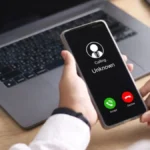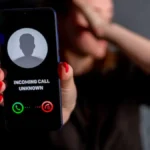Receiving unknown calls can be unsettling, especially when they come from numbers like 844-641-9452, which many have identified as a scams. This article aims to help you understand why you might be getting calls from this number, how to recognize scam calls, and what to do if you encounter them. With a few simple steps, you can protect yourself and your personal information from potential fraud.
Who is Calling from 844-641-9452?
The number 844-641-9452 has been flagged by many as a scam number. When people answer a call from this number, the caller often claims to be from a government agency, a financial institution, or a well-known company. They might use scare tactics, say your account is compromised, or claim you owe money. However, these are all tricks to make you feel pressured into sharing personal information or making a payment. Understanding these methods can help you stay safe and avoid falling for these scams.
What is a Scam Call?
A scam call is when someone calls you intending to trick you into giving away personal or financial information, making payments, or falling for a hoax. Scammers often pretend to be from credible organizations like the IRS, banks, or even social security agencies. The goal is to make you believe their story so they can take advantage of you. Knowing the signs of scam calls can help you identify them quickly and avoid engaging with the caller.
Why Do Scammers Use Numbers Like 844-641-9452?
Scammers choose toll-free numbers, like those starting with 844, because these numbers look legitimate and professional. Toll-free numbers are often used by businesses, so they create an impression of credibility. Scammers use these numbers to make it seem like they are calling from a trusted company or service. It’s important to remember that just because a call comes from an 844 number, it doesn’t mean it’s safe or legitimate.
Common Tactics Used by 844-641-9452 Callers
When scammers call from 844-641-9452, they may use a variety of techniques to trick you, including:
- Threatening language: Saying you’ll face legal consequences if you don’t act quickly.
- Urgency: Pressuring you to provide information or make a payment immediately.
- Pretending to be from official organizations: Claiming they are from the IRS, a bank, or another trusted organization.
- Promising rewards or money: Offering fake rewards, such as cash prizes, as long as you “verify” information or make a small “processing fee” payment.
Understanding these tactics can help you stay alert and avoid becoming a victim of phone fraud.
How to Identify Scam Calls from 844-641-9452
Identifying scam calls is essential to protecting yourself. Here are some signs that a call from 844-641-9452 might be a scam:
- Unsolicited calls: If you weren’t expecting a call from a company, it’s best to be cautious.
- Requests for personal or financial information: Legitimate organizations will never ask for sensitive information over the phone.
- Threats or pressure tactics: Any legitimate caller will give you time to respond and won’t pressure you.
- Unusual tone or message: Scam calls often have scripted messages that sound robotic or poorly constructed.
By learning to spot these warning signs, you can better protect yourself from scams.
What to Do When You Receive a Call from 844-641-9452
If you get a call from 844-641-9452, here’s how you can respond to stay safe:
- Don’t engage with the caller: It’s best to hang up right away if you suspect it’s a scam.
- Don’t share any information: Avoid giving out your personal or financial details over the phone.
- Block the number: Most phones allow you to block specific numbers, preventing future calls.
- Report the scam: You can report phone scams to organizations like the Federal Trade Commission (FTC), or through your phone provider’s spam report service.
Steps to Take if You’ve Already Shared Information
If you’ve accidentally shared sensitive information, don’t panic. There are steps you can take to protect yourself:
- Contact your bank: If you provide financial information, alert your bank or credit card company so they can monitor for suspicious activity.
- Change your passwords: Update passwords on any accounts that may be at risk.
- Set up fraud alerts: Many banks offer fraud alerts that notify you of unusual activity.
- Monitor your accounts: Keep an eye on your bank and credit card accounts for unauthorized transactions.
How to Block Calls from 844-641-9452
Blocking scam numbers can stop them from reaching you. Here’s how to block a number:
- On iOS (Apple) devices: Go to the Phone app, find the number in your recent calls, tap the “i” icon, and select “Block this Caller.”
- On Android devices: Open the Phone app, find the number, tap “More,” and select “Block.”
- Landlines: Many landline providers offer call-blocking services. Contact your provider for details.
Reporting Scam Calls to Authorities
Reporting scam calls helps authorities track and combat phone fraud. Here’s where to report:
- Federal Trade Commission (FTC): Visit the FTC’s website to report scam calls.
- Your phone carrier: Some carriers have built-in tools to report spam numbers.
- Local consumer protection agencies: Many regions have agencies that handle scam complaints.
Reporting helps prevent others from falling victim to the same scams.
Conclusion
Receiving a call from a number like 844-641-9452 can be concerning, but by understanding how these scams work and knowing what steps to take, you can protect yourself. Remember, legitimate companies and government agencies will never pressure you for personal or financial information over the phone. Always be cautious with unknown numbers, report suspicious calls, and take steps to safeguard your information.
Common Questions About Scam Calls from 844-641-9452
Q: Can I trust a call from 844-641-9452?
A: Many reports identify 844-641-9452 as a scam number, so it’s safest not to trust calls from this number. Let unknown calls go to voicemail, and avoid sharing personal information.
Q: What if I accidentally gave information to a scammer?
A: If you’ve shared personal or financial information, take immediate action to secure your accounts. Change passwords, alert your bank, and consider setting up identity theft monitoring.
Q: How do I know if a call is legitimate?
A: Legitimate companies rarely demand sensitive information over the phone or use threatening language. You can also verify the caller’s claims by contacting the company directly using a verified phone number.


